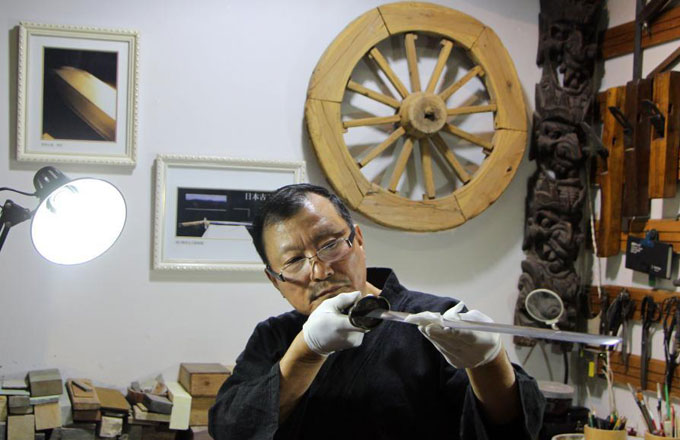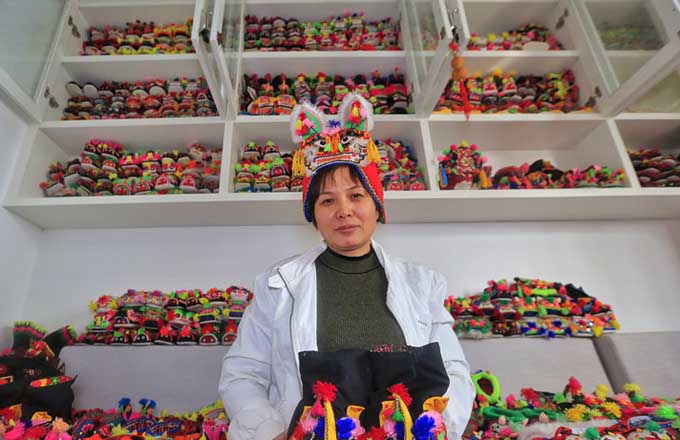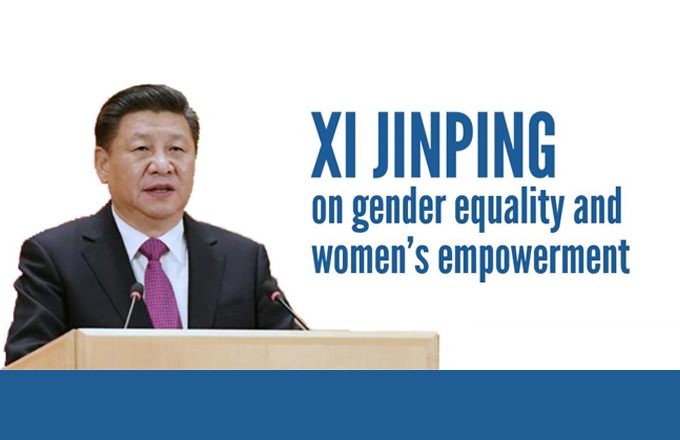Cultural protection enhanced for small ethnic minorities
BEIJING - "I am proud my home village has preserved its traditional style," said Tashi Yangjen, the only deputy to the 12th National People's Congress (NPC) from the Luoba ethnic group.
With 3,600 people, Luoba is one of the smallest ethnic minorities in China.
Tashi Yangjen, 36, grew up in a mountainous Luoba village in Shannan prefecture in Southwest China's Tibet autonomous region, though the prefecture was officially reclassified as a city in 2016.
As an NPC deputy, the first suggestion Tashi Yangjen submitted to the NPC session in 2013 was on retaining the traditional design of Luoba homes, which are usually thatched with straw.
She was worried that the outlook of the village would change as the government revamped and rebuilt village homes, mostly built with stone, wood and straw.
Her proposal was a success. In May 2014, the government approved a plan to preserve the Luoba village.
Now there are 23 new homes built with reinforced concrete in the village that look almost the same as traditional Luoba homes. Their roofs are not covered by straw, but metal that resembles straw.
Tashi Yangjen's suggestions as an NPC deputy were not just about housing. She also proposed that Luoba culture be protected, including language and clothing, as well as improved infrastructure.
Things are getting better for Luoba people. There is a sewage treatment service in her home village, in addition to a garbage disposal facility.
A small factory for making Luoba costume is being built. Upon completion, about five Luoba people will work there making souvenirs and Luoba dresses, which usually feature red, black or white stripes. Together with traditional dress, Luoba women often wear accessories, including long necklaces and headwear made of blue beads.
The Luoba ethnic group has no written language.
"The spoken language of the Luoba is also protected, as traditional words are collected and Luoba children are able to learn them from preschool education," Tashi Yangjen told Xinhua during the ongoing annual session of the 12th NPC.
Tashi Yangjen's suggestions also include improving the subsidies offered to residents living in border regions. This year she plans to submit a proposal to build more public facilities, including small parks where people can get together for events.
"The people's congresses are good because deputies' motions and suggestions are responded to," she said, adding the system is sound because it entitles ethnic minorities, however small, to have at least one NPC deputy.
PART-TIME LAWMAKER
The people's congress system is the fundamental political system in China, with about 2.6 million deputies at various levels.
At the pinnacle of the system sits the NPC, which supervises the State Council, China's cabinet, as well as the top court and procuratorate.
In China's political system, the NPC is the supreme organ of state power. There are nearly 3,000 deputies to the 12th NPC.
NPC deputies are part-time, and a deputy to the NPC can be the country's president or a farmer, a celebrated tycoon or a migrant worker, a lawyer or an official.
Tashi Yangjen was born into a poor family of wheat and barley farmers, and is currently a township official in the Tibetan city.
She was educated in a Tibetan school in Changzhou city in eastern Jiangsu Province and a college in Yueyang city in central Hunan Province, before becoming a primary school teacher in 2004.
The government has been sending students from Tibet to study at high schools in inland cities since 1985 in the hopes of training more professionals for the underdeveloped plateau region and boosting Tibet's development.
Currently about 20,000 students from the region are studying in inland regions, including Beijing, Shanghai and Jiangsu, where special Tibetan high schools are open to them. The free education has enabled hard-working Tibetan children to attend school, even if their families are poor.
Tibet has a huge task to relieve 690,000 people out of poverty between 2016 and 2020.
During the five years starting 2011, Tibet lifted more than 600,000 people from poverty.
Tashi Yangjen said she was happy that all the residents in her home village were lifted out poverty last year.
BETTER FUTURE
There are 56 ethnic groups in China, with Han people representing the bulk of population.
According to China's electoral law, NPC deputies should be elected in proportion to the population, urban and rural regions alike. A deputy might represent several hundreds of thousands of people.
However, each ethnic minority is entitled by law to have at least one deputy to the NPC, and Tashi Yangjen is one of about 400 ethnic minority deputies to the 12th NPC.
These deputies are active in protecting their traditional culture, in addition to making submissions on other issues, including national development.
Padma Chodron, the only NPC deputy of the Menba ethnic group, has a similar educational experience to Tashi Yangjen. Padma Chodron is a township official in Medog County in Nyingchi City of Tibet, and has been focusing on the cultural protection of the Menba, which has a population of 10,500.
She submitted a suggestion to the NPC session last year, calling for a county-level institution to protect and develop the ethnic minority language.
"Our Menba people only have a spoken language," she said. "If no one speaks the language, many of the traditions of the ethnic group will inevitably disappear."
To her delight, in 2016 the local government organized a team to record the customs, legends and ballads of the ethnic group as well as the memories of folk artists.
Observers believe the future of the smaller ethnic groups looks bright either in cultural protection or living standards, as the government attaches greater importance to their development.
According to the government work report delivered by Premier Li Keqiang at the NPC session on Sunday, the government will increase support for development in areas inhabited mainly by ethnic minorities.
"We will protect and develop the fine traditional culture of ethnic minorities and support the growth of ethnic groups with smaller populations," Li said.
- Discipline clusters will build first-class universities, says expert
- Distinctive disciplines play key role in promoting university's global influence
- China's new spaceship to rival the best in the world
- Perfect move: Female chess master discusses life and video games
- Southern Chinese province sees railway-building boom

























